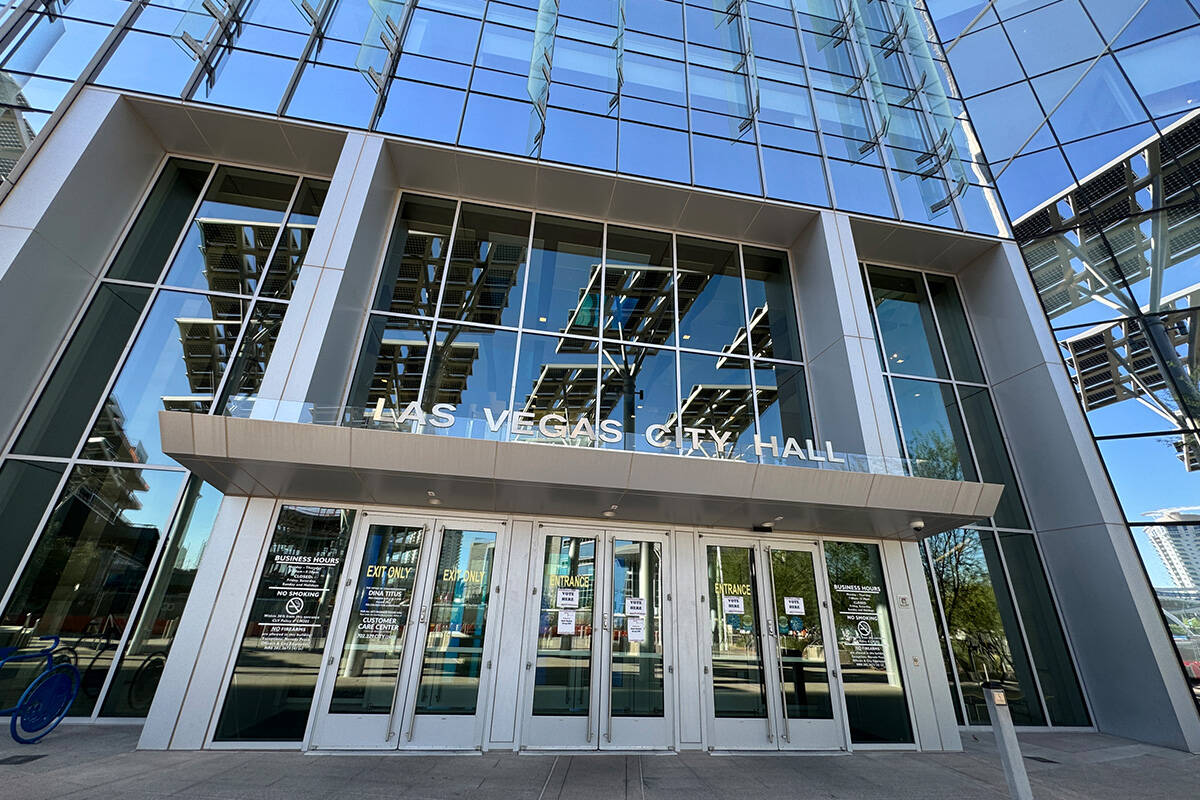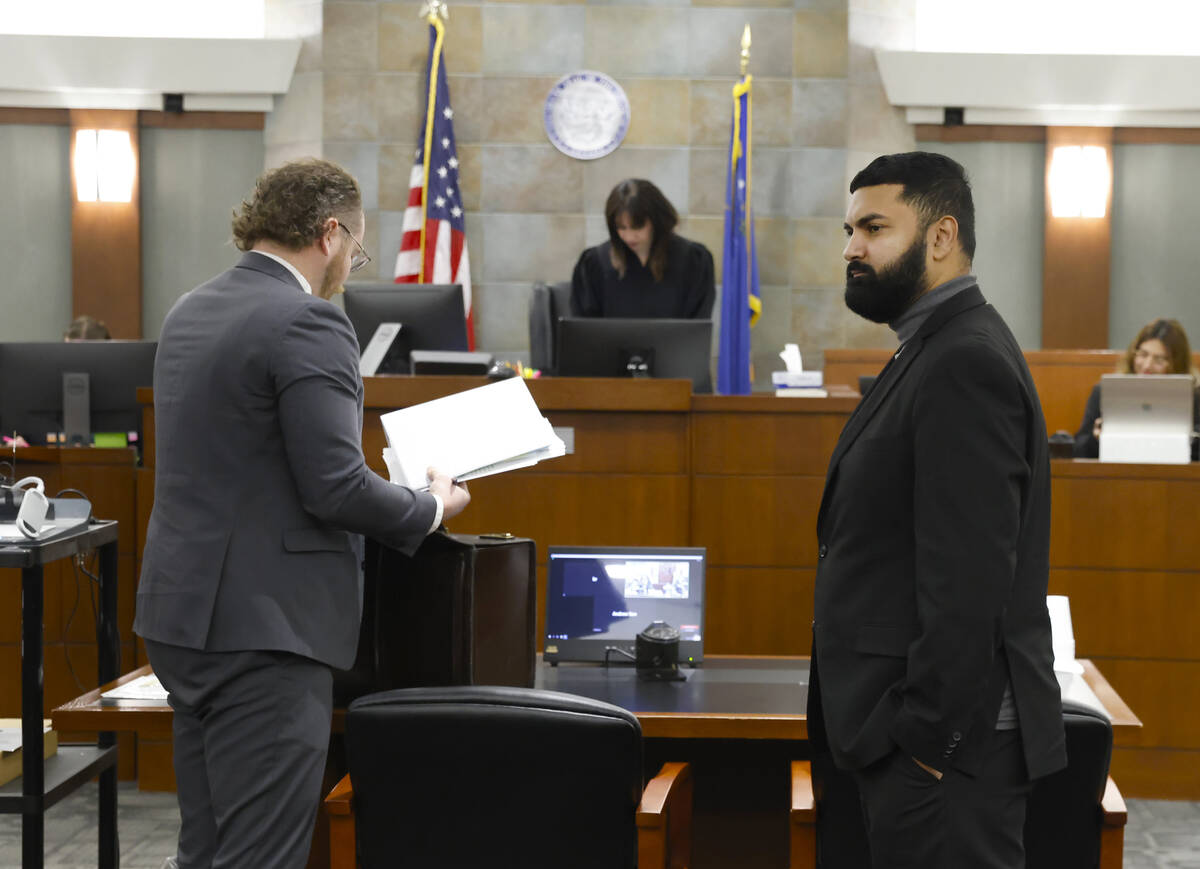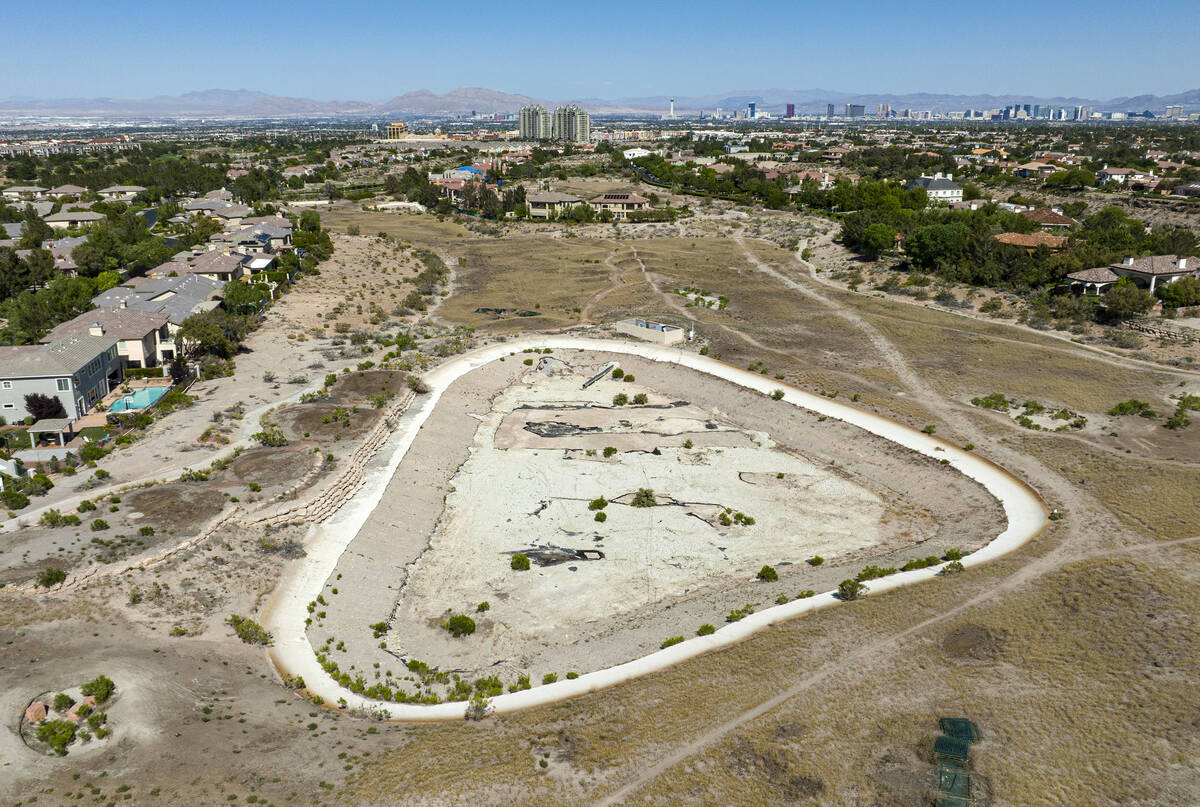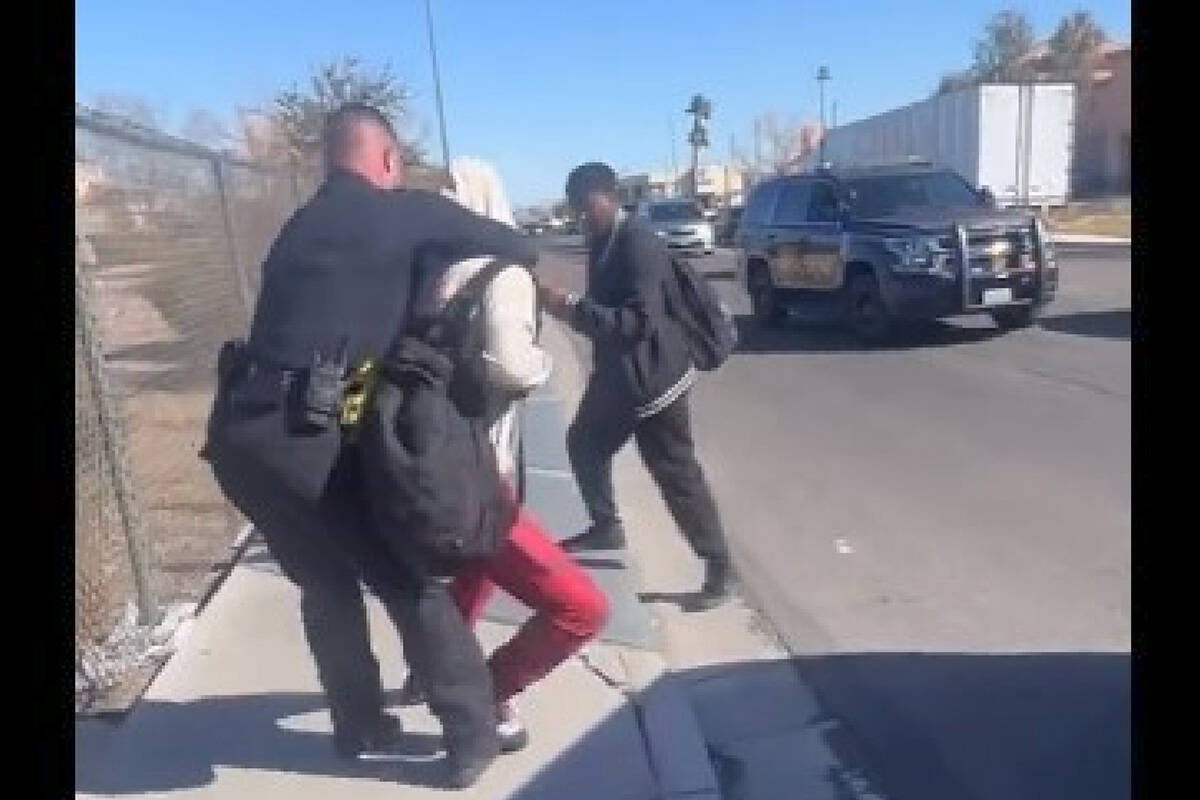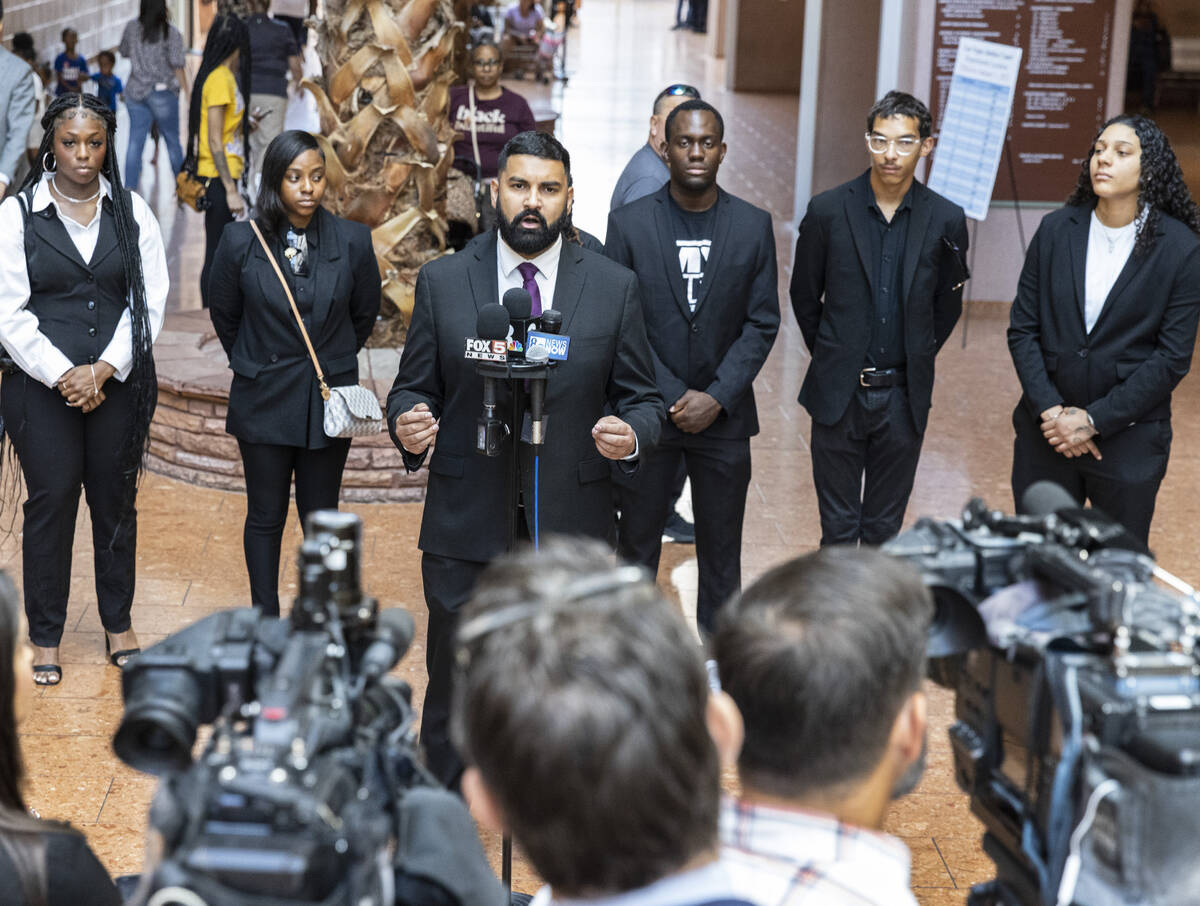Governments in Southern Nevada release heavily redacted public records
Las Vegas taxpayers have spent nearly $6 million on outside law firms in the failing Badlands legal fight. But city leaders won’t disclose exactly what the attorneys did for that money.
The Clark County School District, meanwhile, refused to provide records about an officer’s use of force on a student. It then released nearly 2,000 pages of documents after a legal nonprofit took CCSD to court, but the school district blacked out numerous emails and redacted a big stretch of an enclosed slideshow on protests, riots and police tactics.
The two recent disclosures underscore a long-standing problem in Nevada: Taxpayer-funded agencies might redact swaths of records they release to the public.
“This is taxpayer money, and citizens cannot determine whether their government is wasting money if they don’t know what the money was spent for,” Las Vegas Review-Journal Chief Legal Officer Ben Lipman said of the redacted Badlands-related invoices. “Withholding the records just allows for more secrecy by the government.”
Athar Haseebullah, executive director of the American Civil Liberties Union of Nevada, which took legal action against the school district for its records refusal, said the number of redactions in the district’s eventual release was “pretty significant” and was another reminder that CCSD doesn’t care about transparency.
“This is not an accountable entity,” he said.
Badlands legal invoices
In February, the Review-Journal requested copies of legal invoices showing what the city of Las Vegas paid for outside lawyers to work on the yearslong dispute over the never-built housing development on the shuttered Badlands golf course.
Last month, the city provided the newspaper with more than 300 pages of invoices from three law firms. The documents included billing rates, hours worked and amounts owed, but the descriptions of services rendered were all blacked out.
City of Las Vegas redacted ... by Las Vegas Review-Journal
When the Review-Journal asked for a justification, city spokesman Jace Radke provided a response from City Attorney Jeff Dorocak, who stated that the redactions contained details or descriptions of legal services for ongoing litigation and were covered by attorney-client privilege in state law, as well as the attorney work-product doctrine.
The newspaper replied that redacting all of the descriptions seemed to violate Nevada public records law and asked for records that withheld only information that could be legitimately blacked out. But Radke provided the same response, word for word, from the city attorney.
The law he cited, NRS 49.095, states that a client can refuse to disclose, and prevent anyone else from releasing, confidential communications that are between the client and their lawyer or were made to facilitate the “rendition of professional legal services” to the client.
Lipman said attorney-client privilege is designed to protect information conveyed to a lawyer for the purpose of obtaining legal advice, and to protect the advice itself.
“It does not protect portions of public records simply discussing the general nature of work being performed, and withholding information on that basis violates the Nevada Public Records Act,” Lipman said.
The city attorney’s office stands by its previous statement and believes the redacted information “directly applies” to attorney-client privilege, city communications director David Riggleman said Wednesday.
Developer Yohan Lowie of EHB Cos. acquired the 250-acre Badlands golf course, at Alta Drive and Rampart Boulevard, in 2015. His group set out to redevelop the site but alleged in court papers that the city effectively took the property when it blocked their project plans.
Courts have imposed more than $230 million in rulings against the city in the dispute. The city also has spent around $5.95 million on outside counsel for Badlands-related litigation since 2018, according to figures provided last month by Radke.
In fall 2022, when the City Council voted 5-2 to distribute $2 million to outside law firms for the fight, one of the ‘no’ votes came from Councilwoman Victoria Seaman, whose ward includes the property.
“I’m not going to participate in throwing more of our taxpayer money in a dark hole with no sign of success,” she said.
CCSD redactions
The Clark County School District also recently used redactions to hide information in public records.
After a video posted to social media in early 2023 showed a school police officer throwing a student to the ground, the Review-Journal requested a copy of the incident report and any prior complaints against the officer.
The school district declined to produce the records, citing its ongoing investigation, the newspaper reported.
The ACLU of Nevada announced it was representing the Durango High School students who were “attacked” by CCSD police, and it also filed a public records request. Among other things, the ACLU sought any video footage, witness statements, reports and communications related to the incident.
But the school district refused to provide any of the requested records, the ACLU said in court papers it filed to force their release.
The school district argued that the records were confidential and considered juvenile-justice information. According to court records, CCSD police handcuffed three juveniles during the incident but only cited one. All the youths were released.
In December, District Judge Danielle Chio ordered the release of body-worn-camera footage — with redactions to protect the students’ identities — of the altercation near Durango High.
The judge noted in her ruling that there was no pending criminal case against the one juvenile who was cited, and that two of the students’ parents signed confidentiality waivers.
Late last month, around 4:30 pm on a Friday, CCSD’s media office said that in the “spirit of transparency” it was distributing documents it had provided to the ACLU as part of the litigation.
The unnamed sender noted that redactions were made “for confidential and privileged information.”
Redacted records released b... by Las Vegas Review-Journal
The 1,967-page PDF included numerous redacted emails and blacked-out CCSD police records.
It also featured a CCSD police “Mobile Field Force Refresher,” a presentation that spanned almost 90 pages and sought to describe “lessons learned” from past civil actions and disorders; police inaction and overreaction; common traits and tactics from demonstrators; and due process during mass arrests.
It included several slides titled “Riotous Behavior” with information and images, though around 40 pages of the presentation also were redacted, with slides titled “Law Enforcement Team Tactics” and “Mobile Field Force” blacked out.
Haseebullah, of the ACLU, said he wasn’t sure why the district deemed the slideshow privileged.
CCSD’s media office did not respond to a request for comment.
The “What Are They Hiding?” column was created to educate Nevadans about transparency laws, inform readers about Review-Journal coverage being stymied by bureaucracies, and shame public officials into being open with the hardworking people who pay all of government’s bills. Were you wrongly denied access to public records? Share your story with us at whataretheyhiding@reviewjournal.com.
Contact Eli Segall at esegall@reviewjournal.com or 702-383-0342. Segall is a reporter on the Review-Journal’s investigative team, focusing on reporting that holds leaders, businesses and agencies accountable and exposes wrongdoing.



